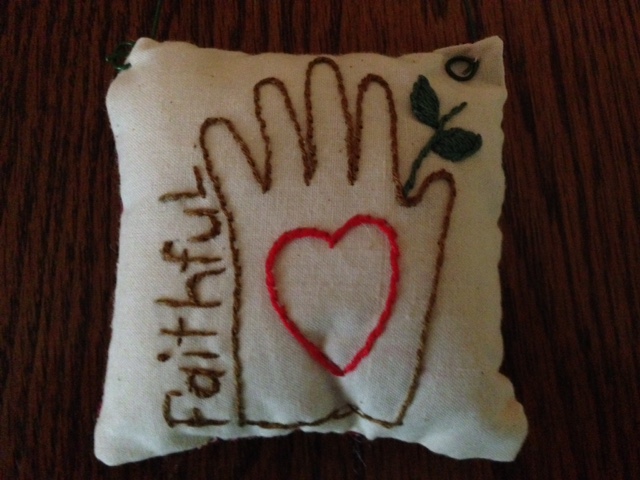Psalm 51: 7, 10
“Purge me with hyssop, and I shall be clean;
Wash me, and I shall be whiter than snow……..
Create in me a clean heart, O God,
And renew a steadfast spirit within me.”
This Scripture is the memory verse for Step 7 in the Twelve Step study that we use with women at Titus 2. Today I was considering these verses as a young lady and I discussed this Step and I had these thoughts about it:
This series of requests for cleansing by the Psalmist depicts a familiar pattern in Scripture…..a progressive movement.
The first phrase, “Purge me with hyssop” suggests a ritual and communal act of cleansing, symbolic and utilizing a purifying agent that is physical. It cleanses the environment and all who are in it and is commonly used to cleanse and consecrate the temple, homes, etc. We can view it as purging the influences of the world from our lives. By participating and being in the midst of a hyssop purging, we signal our willingness to enter into the cleansing process. A church we attended in the mid-70’s went through a time of conflict and division. A group of us met in the sanctuary one afternoon for prayer. We ended in the early evening by anointing the pews and altar and doorways with hyssop oil. It brought peace to those of us who participated and the division was eventually healed and peace restored.
The second phrase, “Wash me and I shall be whiter than snow” represents a further stage of purification…a personal external cleansing that leaves one “white as snow”…. This “wash” stage of cleansing is upon the exterior of the person and it deals with the outer appearance as seen through the eyes of God after we are covered by the righteousness of Christ. This is familiar language used to represent the imputed righteousness that is ours with justification.
The next phrase, “Create in me a clean heart, O God,” represents the interior, deep work of sanctification, cleaning at the deep level of the soul. It is the imparted righteousness that is true transformation through “circumcision of the heart.”
In the same way Isaiah 1:18 presents this dual process of imputed and imparted righteousness with similar language:
“Come, let us reason together.” This suggests a ritual and communal approach as a point of beginning.
“Though your sins be as scarlet, they shall be as white as snow.” Snow is something that creates the appearance of cleaness by covering over the underlying reality. This parallels the work of justification by Christ’s death and reveals how God sees us through the righteousness of Christ after our profession of faith in Jesus.
“Though they be red like crimson, they shall be as wool.” Wool is white in and of itself. This parallels the imparted work of righteousness that occurs with sanctification, not just covering over our sins, but actually transforming our stained lives into something that is white itself, not just covered with white.
The final phrase in this Psalm 51 plea is, “and renew a steadfast spirit within me.” To renew something suggests that it has been in that state previously. The Psalmist is seeking a return to a posture of firm and unshakable faithful spirit-depth righteousness after a personal moral failure or disobedience. The writer’s restoration begins in community and progresses through degrees of depth, intensity, and renewal to the very core of his spirit and his reconciliation with God through that spirit to Spirit renewal. .
When examined in this progressive way, the verses make it clear this is a desire, a pleading, for whole and complete restoration….within community, externally and to one’s deepest heart and he implores God to make him faithful going forward, as well. Not a bad plea for all of us, but especially for women doing their Step 6&7 for the first time.
CBByrd 6-26-2016
![MPj04389070000[1]_phixr](http://disciplerofself.com/wp-content/uploads/2015/03/MPj043890700001_phixr.png)
